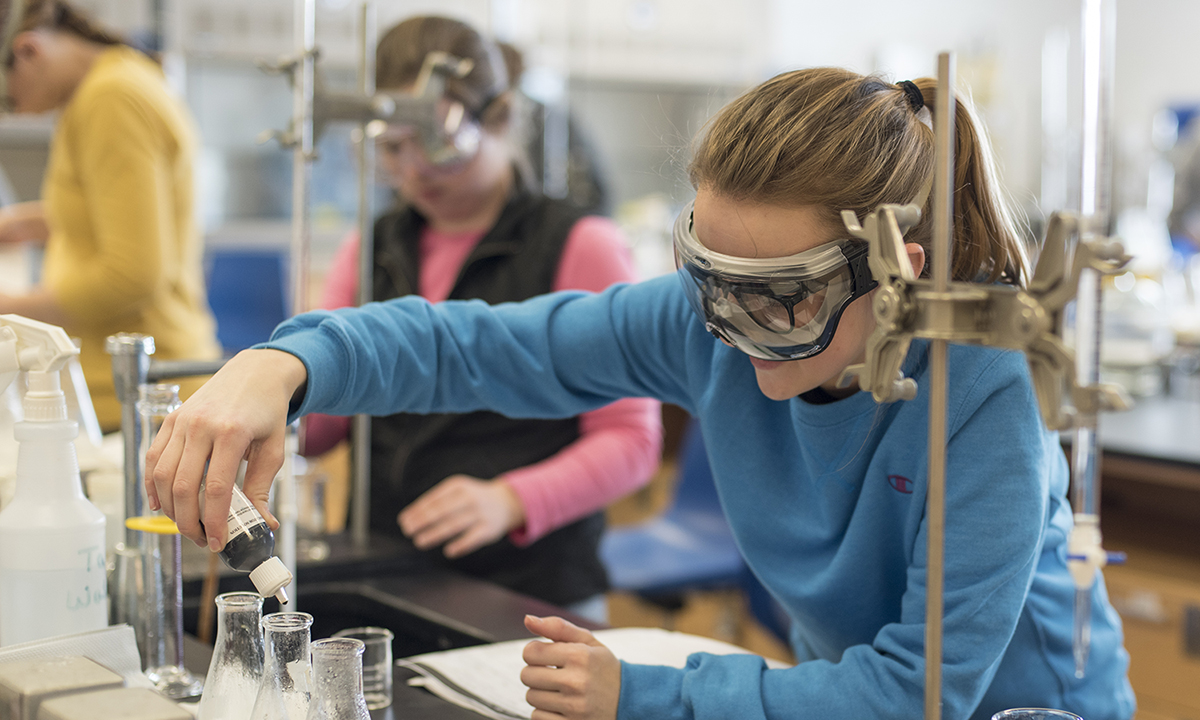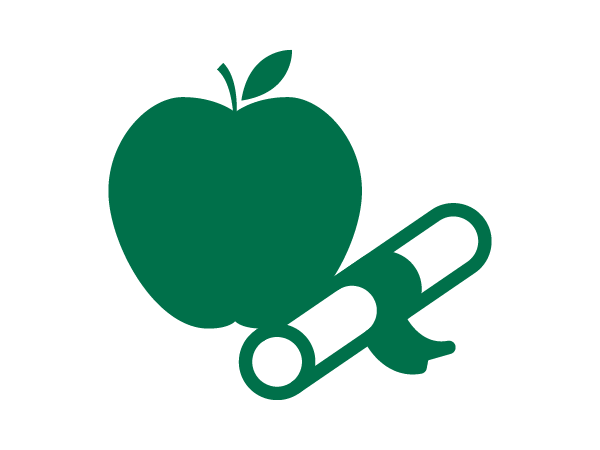Program Overview

Obtain a career in the chemical technology field. Develop your skills and knowledge necessary for a variety of technician jobs in different industries.
This program is a lab‐based program designed to prepare you for a career in chemical technology. Students learn important hands-on skills and as chemical technicians develop problem-solving and critical-thinking skills to solve problems encountered by chemical technicians in -industry. This program has also been approved by the American Chemical Society.
Technicians typically gain employment with significant responsibility in laboratories in the chemical, pharmaceutical, clinical and allied health professional industries. The AAS degree prepares students with skills sets for transfer to numerous chemistry, biochemistry, molecular biology and neuroscience programs. It provides a solid foundation for students with aspirations for professional careers in medicine, optometry, pharmacy and veterinary science.
In this program, you will gain skills and knowledge needed to work in the scientific and technical areas that include:
- A high practical aptitude, creativity and good observational skills
- Problem solving and independent thinking with strong analytical skills
- Detail oriented, a committed to learn new skills, acceptance of responsibility and desire to be a member of a scientific team
Why you should choose Delta
Our faculty are highly trained and routinely speak at state and national conferences. Faculty often work with students as they begin to make career choices and many classes offer interactive lecture/activity and hands-on lab sessions. Check out our travel courses, blended courses (combination of classroom and Internet-based) and online courses. Courses range from introductory to more advanced that satisfy the first two years of four-year degrees in science, engineering, medicine and more.
As a Chemical technician, you become a vital member of the laboratory team and have the opportunity to contribute to new technological advances. Research and development, production, and testing laboratories all use instrumentation and equipment; you have a basic understanding of each type of instrument and know how to use it. You work independently to perform tests and experiments and to analyze, interpret, and report results. You use skills and instrumentation to perform duties such as chemical testing, environmental monitoring, research and development, and quality control.
Co-op opportunities will help you to further gain the hands-on training employers are looking for in full-time employees. You can get hands-on experience in your field while you're working toward that degree.
You can work in one of our region's chemical plants or a local lab. Plus, you'll even get paid. Talk to a chemistry faculty member to find out what's available.
At the Teaching Learning Center, located in the Library, we offer tutoring on a wide variety of subjects, and help with developing study and learning skills. Most tutoring is on a walk-in basis but we do have some online tutoring options.
Best of all, it's free for currently enrolled Delta students. Just another way we demonstrate our commitment to helping students succeed.
The goal of the Delta Chemistry Club is to collaborate and explore the many diverse areas of chemistry while helping students learn from all levels of chemistry, chemical processing, chemical technician, health-related, and engineering.
Contact the club advisor: Bernadette Harkness
One of the very best things about Delta College is your ability to start here and go anywhere. And, in the process, save thousands (and thousands) of dollars. It's a smart choice!
In fact, if you're interested in earning a bachelor's in chemical technology you have several options by coming to Delta first, and then transferring. Delta has signed transfer agreements to continue your chemical technology studies with:
- Davenport University - Biological Laboratory Science
Interested? Make an appointment with academic advising to discuss your dreams. Courses transfer differently based on the university you plan to attend. An advisor can help you determine the exact courses you need to get the education you’re looking for.
facts & figures

With a student to professor ratio of 16 to 1, our students get personal attention.

95% of our professors have a master’s degree or higher.
Related Programs
Delta College offers several degree, certificate and training options. Continue exploring and advancing your education with these related programs:
"I chose Delta College specifically because of their Chemical Technology program, the affordability and the ties to local industry. I was able to graduate with less than $1,000 left on my student loan and transitioned from a college technical co-op to a full-time employee when I graduated."
Chemical Technology graduate